Code of Conduct
This is from a the website of MDI (Mentor Discover Inspire, formerly "Men's Divisions International"), as seen on the 1st of January 2011. Much of the text is derived from the 1995 version. The introduction and changes (mostly additions) are by Howard Spierer, President of MDI during 2009 and 2010.
Contents
Never Engage in Battles With Weaker Opponents
Code of Conduct
My suspicion is most men who are new to MDI are unfamiliar with the Code of Honor. The Code was created by the men of what was then known as the Sterling Men’s Divisions. It contains 15 different tenets. It was intended to reflect some basic core values that all the men could rally behind, support and use as a benchmark for the ways of being we could expect from one another. It is part of the legacy of who we are. Many men still tote around MDI cards that contain the Code on the back. I would like to bring it back into the consciousness of all of our men.
In the late 1990s the men of the Western Region created an ark which contained 15 different pieces of wood, one for each tenet. Each stick was made of a specific type of wood and bore a specific design that reflected the way in which the men of the Western Region related to the tenets of the Code of Honor. The ark has since made its way throughout North America and men throughout MDI have had the opportunity to connect with it. I had the opportunity to safe guard it for a while and was moved to write a little about my relationship to each tenet. Read the first of the Tenets by clicking here.
(footer text about MDI is here)
Code of Conduct: Commitment Before Ego
The wood that best reflects this tenet is Manzanita — A strong hearty tree that grows in some of the most barren environments. Where other things have difficulty surviving, Manzanitas continue to grow and branch outward. A commitment driven by a powerful context will flourish like the Manzanita tree.
The symbol that represents this tenet is the Coyote — In Native American mythology, the Coyote is the trickster, the clever one who often tricks himself with his own cleverness.
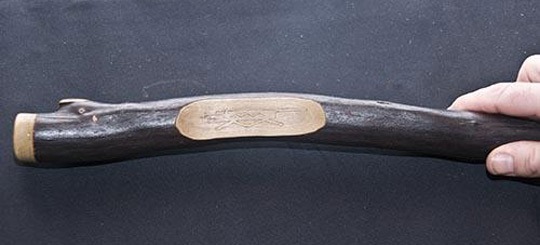
Manzanita
Many people consider the notion of having an ego to be a bad thing. I disagree. In my mind to be successful, a man must possess a strong and healthy ego. I certainly have had one for as long as I can remember. However, for me the trick was not to let my ego consume me. Through my work in MDI I have learned how to master my ego. It was not always a pleasant process. So the discipline I found myself embracing was asking, “Why am I doing something?”
Before I had developed a set of core values, I often found myself drawn to doing what felt good without giving any thought to the ramifications living my life without a clear sense of my commitment I found myself being led by whatever happened to be at hand in the moment (usually responding to someone else’s crisis to further bolster my ego). My life was more reactive than proactive. Short term being reactive seems more fulfilling, lots of instant gratification. But being older, I have really come to appreciate that being proactive has allowed me to create a sustainable legacy.
In my mind the tenet Commitment before Ego demands two disciplines:
- To practice and possess a firm understanding and adherence to my purpose and commitment; and,
- To maintain a healthy relationship with my ego that relies on an iron mastery of it.
Many people equate commitment to making a pledge or promise to do something. Actually commitment is action. Commitment shows up not in what I say in the passion of a moment or even the things I do when spurred on by others or when things are going well. The benchmark of my commitment is evidenced by my actions when the underlying reasons behind my words seem challenged, when I no longer wish to be held to what I said, when there appears to be no reward for following through, when quitting looks like an attractive option; this is where the Ego has fertile ground to play its tricks.
There are many definitions and theories about the ego. Although Native Americans embody it in the form of a Coyote, it is more elusive than that. It is usually easier for others to see Ego governing our actions than it is for us. When I find myself needing to defend or explain my actions, it is usually a good indication that my ego is engaged. Rarely do I feel compelled to justify those actions that our driven by my commitment because the actions speak for themselves. When I am operating out of commitment, I am more interested in doing than discussing.
This tenet is not Commitment over Ego; it is Commitment before Ego. By that we mean let your commitment lead your ego rather than the other way around. The need to look good is Ego before commitment. The desire to do good is Commitment before ego.
There is nothing wrong with doing things because they feel good. I am a firm believer in the notion of “enlightened self interest”. I do good not because I am altruistic and aspire to be Gandhi. There is always something very definite in it for me. The key is to know what that pay off is so that I can keep my ego in check and be honest with myself about my motivations. Fortunately, the men around me continue to help me to find ways to feed my ego while adhering to a higher commitment than just my personal self interest.
Code of Conduct: Honor the Truth
The wood that reflects this tenet is Madrone — The Madrone trees grow on hillsides, intermingled with many other species of tree. They do not dominate their environment and from a distance are unremarkable. They are easily overlooked. But on closer inspection, their bark gives away a hint of the rich beautiful wood that lies within.
The symbol that best reflects this tenet is the Zen symbol for the Sun & Moon — These are universal symbols of light. The sun projects the light and the moon reflects it. Without the moon’s reflection there would be no evidence of the sun’s presence. For this reason Zen Buddhism considers the moon to be the symbol of enlightenment for it captures the light and sends it outward.
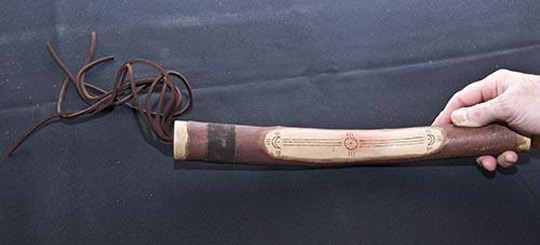
Madrone
The whole notion of there actually being something that is universally true is something of a lie.
Personal truth is just like fingerprints or DNA; it is consistently unique for everyone. So if that is the case why have a tenet that asks men to honor the truth? Well because that is exactly what it is asking you to do. Honor the truth, not just yours but others.
So how do you get there? Start by asking yourself a simple question, Why am I here?
From there the questions peel away like an onion.
What do I hope to get for myself? What do I hope to give back to my family, community, the planet? Who itch do I hope to get scratched from all this giving? What do I really, really want?
Asking these questions is in essence what most would characterize as engaging in the search for truth. This search lies at the heart of every religion and drives every philosophical construct.
Buddhist say that when you perceive truth, all else drops away, ego vanishes and there is nothing more than that moment. A passage of the New Testament of the Bible says, “You shall know the truth and the truth shall set you free.” It really is that simple, so long as you keep it personal.
The complications set in when you try to impose your truth on others. Once you accept that truth is a very personal thing, you come to realize that no one person and no set of people can claim ownership to it.
All of us have experienced moments when our truth about something has become crystal clear to us, sometimes painfully so. I know when I am there not because it resonates in my head but because it resonates elsewhere, in my heart, my guts my balls. Suddenly I feel enveloped with a sense of clarity and for the moment I experience a feeling of exhilaration or of calmness and freedom. Everything falls into place and I see things that I must have looked at a dozen times with a new perspective.
However, just a little word of caution, this tenet does not say “Tell the truth,” rather it says honor it.
Sometimes it is better to hold the truth in your heart than to reveal it to someone who might not be ready to face it.
For example, when you hear the question, “Honey, do I look fat in this dress?”
So when do you speak the truth? You can’t really pick the time, rather it picks you. If we suddenly declared, “It is time to honor the truth.” Each of us would unconsciously or maybe even consciously start erecting internal mazes that would make it exceedingly difficult to get to the truth.
In MDI we strive to create an environment that fosters respect for sincerity, honor and genuineness. To create such an environment is a challenge. In such an environment I have found there is an opportunity to learn something. Often it comes not from something that I say or think I know but from what I hear come out of the mouth of another man. When I am listening to another without judgment, that’s when the truth has a chance to bubble to the surface.
Code of Conduct: Respect Confidentiality
The wood that best represents this tenet is Eucalyptus — The eucalyptus tree is usually found growing in groups. Its outer bark is shed easily, but gives nothing away. Its inner bark is strong and not easily stripped away. The strong aroma that is the true gift of this tree is safely encased within the inner bark.
The symbol for this tenet is the Armadillo — In some Native American traditions, the armadillo is a symbol of boundaries. To protect itself, the armadillo will roll itself into a ball protected by its outer shell.
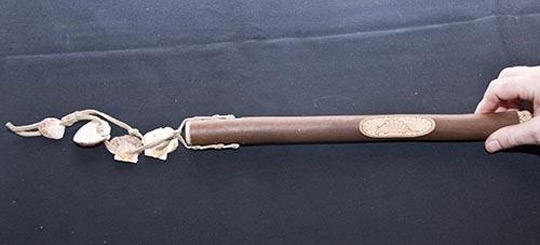
Eucalyptus
Definitions:
Confidential — indicating confidence or intimacy.
Respect — to hold in esteem or honor.
One of the most misunderstood concepts I have come across in MDI is the notion of respecting confidentiality. We go to great lengths in our men’s circles to get men to appreciate that this tenet does not say enforce confidentiality but rather respect it. So what does tht mean? The tenet does not ask that we keep secrets or remain secretive. At the start of every meeting we tell men “you are encouraged to take the lessons learned here and to share them with the men and women in your life”. We are not looking to be secretive but to allow men to be confident that what occurs will not become the fodder for idle gossip. Simply, this tenet asks that men respect the intimacy created amongst men who come together for a common purpose. Intimate circles allow men to feel safe, safe to let down their guard, to be vulnerable and to honor their truth.
During times of war, soldiers were reminded, “Loose lips sink ships”. Likewise, the bond of intimacy is a delicate one, which can be shattered by a thoughtless indiscretion. The bonds of trust are delicate. They can be likened to flames on a candle. When guarded and sheltered from an errant wind, they burn bright and can light a room. However, the flame is easily extinguished in that moment when our guard is dropped. There is a deep power you can access each time you draw a line and stop your mouth just when you were about to run it and make a conscious decision to honor the sanctity of a sacred space.
My wife, Dorry, and I have a simple ritual when we go out to diner together. We can talk about others during the appetizers, about our lives during dinner and then we can look around the room and make up something about a couple at another table for desert. The subtext is rather simple. Any conversation about some one else is fairly insubstantial. Either it is intended to make the speaker feel better about them selves. Rarely is gossip about someone else’s victory or success. Rather it is about a tragedy or embarrassment that allows us to think about how lucky we really are. Another function of gossip is to serve as a prelude for the much meatier discussion about what is up for us. A conversation about someone else’s infidelity is a hint that Dorry might be feeling like I am taking her for granted or not really present in the relationship. A tidbit about someone going off to the hospital is her round about way of inquiring how I am doing with my MS. In any event it whets our appetite for a much longer dialogue.
The chance to gaze around the room and come up with story about a couple at another table is designed to let us leave the table feeling fulfilled with a nice taste in our mouth no matter how tense our “meal” may have been. We have found it is hard to touch a nerve when discussing total strangers.
One short hand practice I have found useful when someone is looking to engage me in some gossip is to ask a very simple questions, “what does this have to do with your or my life?” The answer is inevitably “nothing:. To which I reply, “then I don’t need to hear it.”
– Howard Spierer
Code of Conduct: Keep Your Word
The wood chosen to represent this tenet is the Fig. The fig tree is mentioned in some of the most ancient of text: the Bible, the Koran, and the Book of Buddha as source of unexpected yet reliable sustenance. Even in the most inhospitable of climates it always fulfills its promise of providing an abundance of fruit.
The symbol for this tenet is a Key — The key symbolizes a promise to unlock and make available something that has been placed in trust for safe keeping… but only when asked. A man’s word is the key to manifesting his power.
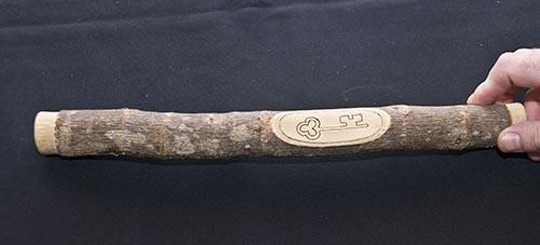
Fig
This tenet is pretty straightforward and really is the cornerstone of what we do in MDI. It is hard to overstate the importance of ensuring that your actions are consistent you’re your words. Anyone can understand the importance of this tenet and can easily articulate what it means. Yet each of us has failed to uphold this tenet from time to time. Why do I sometimes fail to keep my words, even when I had every intention of honoring them when I spoke? It is one of the easiest pitfalls to succumb to. I always want to please and seem agreeable. If some one asks, “Can you do me a favor and ……..” My initial reaction is almost always to say yes. I have however started to employ a simple discipline of giving myself 20 seconds before responding. I’ll explain why in a moment.
All we have as we really have are the bonds and agreements created by our words and re-enforced by our deeds. I have come to embrace my word as the public expression of who I am and the sacred essence of what I am prepared to take a stand for. It is MY word; it belongs to me and can only be co-opted if I permit it. If I treat my word as something of value, I am less likely to give it away freely and without thought. If I prove through my actions that my word means something, I have found that it has a similar affect on others. They too will take seriously what they agree to. How many times have you been in a situation where you have to remind someone of something they promised to do and the retort is, “yeah but…… fill in your favorite excuse?” Few things are more infuriating and over time the “yeah buts” will poison a relationship.
So now, before I commit to anything I do my 20 second drill. I ask myself:
- Is this even something I want to do?
- Is this something I can do?
- What do I need to know or have to get this done?
- What can possibly get in the way of me completely this commitment?
- Is there anything I want in return?
All of these are critical questions and one flows logically to next. The most important is of course the first. I never commit to do anything I don’t want to do. And since I never believe in never, in the rare moment when I do commit against my better judgment, I make sure that the last question is addressed to my satisfaction. I have learned that just because I choose to be charitable does not mean I have the right to expect my largesse to be reciprocated. If I am expecting some sort of karmic pay back, I need to ask for it and I need to ask for it before I commit. I don’t expect to have the right to stop mid-task and ask for a favor.
Another discipline that I find invaluable is to make sure that what I intend to say is understood that way. But that’s for another day.
For now I will keep it simple. Choose your words wisely and be prepared to stand behind them.
Say what you mean and mean what you say.
– Howard Spierer
Code of Conduct: Be Three Dimensional
The wood chosen to represent this tenet is Walnut — The walnut tree gives on many different levels. It is a strong wood, used to construct sturdy and dependable furniture and shelter, it also provides clean burning aromatic firewood and has been used by Native Americans to conjure the spirit and of course the tree produces lots of walnuts a valuable source of rich nourishment if you can break through the hard shell.
The symbol represnting this tenet is three interlocking rings. The rings represent the three dimensions of a successful man -resolve, compassion, and humor — each intertwined and inseparable from the others. The center, where they intersect reflects a place of balance and full strength.
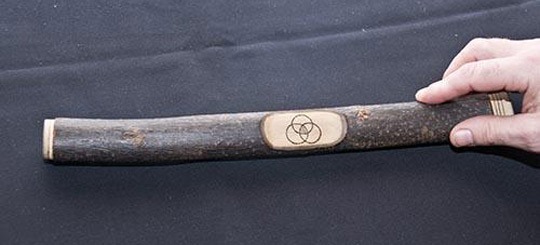
Walnut
This tenet simply asks men to have a little depth. Don’t be a one trick pony. In MDI we strive to be multi-dimensional men and look to two different constructs. One example of a three-dimensional man is illustrated in the Sterling Men’s Weekend: one part Clint Eastwood, one part Gandhi, and one part Curly of the three stooges. It is said these three men embody the three aspects of manhood necessary to be a well-rounded man. Clint embodies the unshakeable ego that strengthens our resolve to grab our balls, trust our gut and get the job done without pausing to question ourselves. Gandhi embodies the spirit that connects us to one another and provides the resolve to endure great pain to obtain a higher purpose and to do so with humility. Curley embodies the wisdom of a man who can laugh at himself and is indifferent to how others view him, allowing him to be true to himself.
In Legacy Discovery we speak of the varied attributes of the Warrior, Lover, Magician and King: the resolve to take on a challenge not for glory but because it’s the right thing to do; the ability to see the world through another’s eyes; the willingness to continue to question everything; and the desire to allow others to share in your gifts and abundance. Simply put, to succeed, a man must have the depth to look beyond his immediate needs and should strive to be well rounded by learning to access a variety of tools within his “tool belt”.
Few men succeed in maintaining a balance amongst their many dimensions. And many men struggle to embrace a dimension that is just not within them. It is hard to imagine Curley on a hunger strike, Gandhi imploring some punk to, “make my day” or Clint doing the Curley shuffle. And therein lies the challenge. Identify the dimension that represents your strength and then draw from those men who embody the dimensions that are your weakest. No one needs to master ever dimension but the best leaders know where to look to cover their blind spots.
It is easy to spot those men; you have probably already identified them in your life. They are the men who push your buttons. Whose priorities make no sense to you, whose way of being is foreign to you and uncomfortable for you to embrace? These are the men who have the most to offer you and for you to give to them. To work in harmony with these men is to be at the intersection of the three circles, to be at the heart of masculine power.
Code of Conduct: Be Prepared
The wood representing this tenet is Pine — Pine trees are prepared for every element. They are flexible enough to sway in strong winds. Their branches can sag to the ground with ice and snow without breaking and bounce back with resiliency with the thaw. Their sap cools in summer and warms in winter. They stand ever green, always prepared.
The symbol for this tenet is the Squirrel who gathers nuts to prepare for a hard winter ahead.
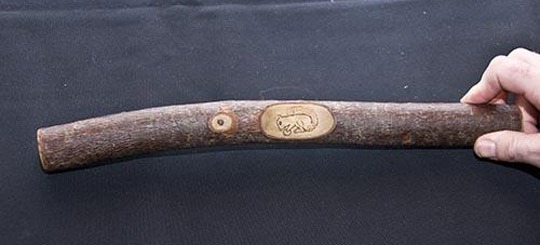
Pine
The saying, “Be Prepared” has been popularized by the Boy Scouts. Imagine a young scout marching off to the woods for his first overnight. He has his compass, his tent, his sleeping bag, knife, and poncho. He is ready for anything the physical elements may throw at him. He knows first aid and knows how to signal for help if he is in trouble. He can care for his physical well being. This level of preparation is important. It is good to anticipate what the elements may throw at you and be ready to answer in kind. This level of preparation helps us succeed in our jobs and at many daily tasks.
However, there is another level of preparation. It is the level within. Will all the tools and tricks help that Boy Scout deal with the emotions of his first night away from home? Has he been prepared for that? Are you prepared for the unexpected? Can you be?
I have always considered the notion of being prepared to require me to fully embrace all that I don’t know and to run through my head all the various and sundry possibilities that might arise. It does not require me to know how I will act in a given circumstance because you can never anticipate all the possible variables. It just requires that I not be taken by surprise by what might occur.
I am a big proponent of living in the moment and to do that I need to avoid the distraction of surprise. A deer freezes from the headlights of an oncoming car because it has no experience to help it process what that light might be, so it literally stops in its tracks. However a deer that has seen a member of the herd get picked off by an on coming car knows what those lights represent and will move and move quickly.
As humans we live our lives in relationship with others. Being prepared calls upon us to know when and how to turn to those relationships to ensure we have what we need and are not left like a lone deer standing paralyzed in the path of an on coming truck.
Code of Conduct: Defend Humanity
The wood that reflects this tenet is cactus. The cactus is used to create the Rain Stick — Many indigenous people use the rain stick to call forth rain when there is drought or the grandfather spirits when men of the tribe suffer from an emotional drought or crisis of faith.
The symbol on the stick is reflected in the colored bands that represent the colors of man. Yellow, red, black and white, they reflect all humanity.
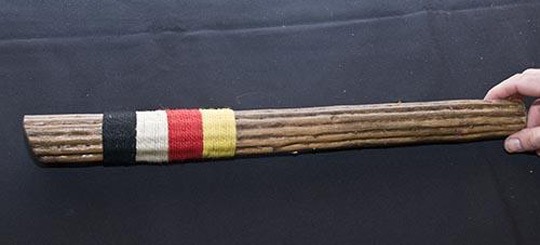
Cactus
Definition:
To Defend — to take a stand in support of something without regard to the cost.
There are at least two levels to this tenet. One is to take a stand for all humankind. To strive for a higher purpose, something larger than oneself. This may seem daunting to some because you may ask, “How can one person change the world?” But in truth the world changes every second because of the acts of millions of people acting alone. The challenge is in helping each of those individuals to find the higher purpose that allows their actions to move in harmony rather than conflict.
Personally, striving for a higher purpose seems easy because I am aiming at a large target. I have no idea if anything I do is actually making a difference but it feels good to be doing something I, and others, deem to be worthy. After all, even the most altruistic act is driven by the simplest impulse — it feels good. Or I feel so guilty that in doing an act of contrition, the guilt wanes and….. I feel good.
However actually attaining a higher purpose requires a long-term commitment to excellence and consistency because to achieve something beyond and bigger than me, I need to strive to be better than what I already am. Now that is daunting, the notion of actually being great on a daily basis. That’s a little more challenging than just recycling newspapers. It is also something most people never choose to take on because it is long term. Few of us have the tenacity to strive for something that probably won’t be attained until long after we are dead and gone. And since we won’t be there at the end, we don’t get the feel good payoff…so we — or more to the point I — give up.
So let’s look at the other level: to take a stand for that which is humane in every man. That seems a little more do able to look for and embrace that essence within each person that makes them distinct and unique. The definition of humane is “the best qualities of mankind — mercy, honor, compassion.” To work at this level you must be tenacious enough to fight to bring out these qualities in every man you come in contact with and to trust that these qualities exist in every man, especially you.
Honoring this tenet at this level can be challenging as well. There are many times I want to dismiss someone I find obnoxious or childish or pigheaded. What I try to do instead is figure out how to meet that person half way. Somewhere between the conduct that is irritating me and my sense of what is right there is a point that the two of us can probably both settle on and interact in a meaningful way. To me being willing to search for that point is defending humanity.
However you hold the tenet it still requires you to take a stand for something outside of yourself and to do so without regard to what is personally at stake for you. It is a discipline that if practiced consistently, should make you feel good. Which in the end is really all any of us want, right?
Code of Conduct: Always be Faithful to the Men
The wood that reflects this tenet is oak --Oak is a tree of strength and steadfastedness. Something built of oak can be counted on to last a very long time.
The symbol representative of this tenet is the dog — The dog is universally recognized, as a symbol of faithfulness, forever at the side of is master and companion.
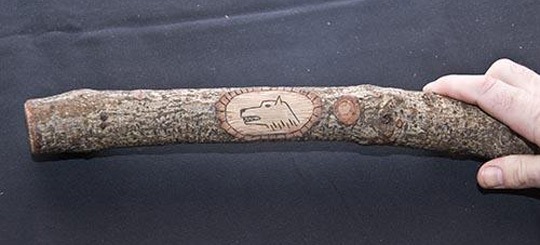
Oak
Definition:
Faithful — to be dutiful — loyal — worthy of trust — consistently reliable — consistent with the truth
This tenet can be tricky. Many men have mistakenly interpreted it to call for loyalty toward men at the expense of women. It is not about that. Many men have assumed it calls for unquestioning devotion to the men on your team. It does not. It is not about selling out a man by not challenging him in the hope that he won’t challenge you. Rather it should be held in the spirit of being committed to the greatness that resides within every man.
To have trust that that greatness is there.
To dutifully strive to bring it out.
To loyally follow a Code of Honor that allows it to flourish.
We teach faithfulness by being consistently reliable and consistent with our truth. Being faithful means seeing a man’s greatness when he cannot see it in himself.
This tenet can be interpreted as not quitting on another man. It calls for you to ask a man what he wants, why he wants it and what he is prepared to do to attain it. It is your job to probe, the first answer to why is rarely ever the real why. It is also your job to do a reality check on the how, is it really attainable and does your man have he resources he needs to get it done? If so get to it and inspect, inspect, inspect.
Code of Conduct: Defend the Code
The wood chosen to reflect this tenet is Cedar — Cedar represents purification. It is used in rituals designed to get close to the pure source. As an evergreen, cedar is resistant to the elements and is durable; it stands the test of time.
The symbol that represents this tenet is the shield emblem of the Sterling Institute of Relationship — The Sterling Institute is the example of an organization that has been instrumental in bringing men together for a common purpose to embrace a common vision. That vision is reflected in the Men’s Division Code of Honor.
This stick also bears three crow feathers. The crow in Native American tradition is the “keeper of the law.”
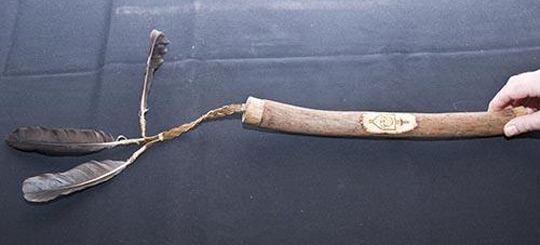
Cedar
Definitions:
To Defend — to take a stand for something without regard to the personal cost.
Code — a set of accepted rules and regulations that are applied to a specific set of circumstances.
Living by a code should not be mistaken with honoring one’s terms. Terms are personal. Each man must determine where his line in the sand is and then stake it out as his terms from which he commits not to waiver.
A code however represents a shared agreement. By agreeing to defend a code, any code, you make an agreement with many others to adhere to a set of rules and ways of being that you can each be counted on to fight for.
A code is a unifying force that empowers men to apply their personal terms in the context of a higher vision that allows for a level playing field. It becomes the unspoken “truth” that allows men to know what ways of being and actions others can be counted on for.
In order to defend the code, one must
- understand the value of having a code of honor in ones life;
- Understand the power behind getting the buy in of your community to breath life into that code;
- Make sure the standards and rationale behind the tenets of that code are clear and compelling;
- Keep the code (and its value) alive by living it, teaching it and calling out those who are not living it; and
- Provide a space for those who stray from the code to regain their honor.
I think it is important to take a step back and keep something in mind, reclaiming one’s honor means a man has made a commitment to take a stand for something and he has broken his word. The operative point being “his word”. I’ve seen too many men try to impose their code on a man and insist that he needs to reclaim his honor for violating their code. However, the first thing to ask is “is this a code the man signed on to?” The power in any code is the degree of buy in. When I am enrolled into a construct I begin to take ownership of it; the deeper the level of ownership the greater the passion in defending it.
Think of how you felt as a kid when your parents imposed rules on you; when a boss imposed some unreasonable edict at work, when a cop wrote you a ticket for doing 80 on a deserted highway at one in the morning when you were rushing to get home. Those were all times you had to comply with someone else’s rules; you were not in on the rationale and probably weren’t asked if you agreed to abide by the standards you were being subjected to. You probably felt frustrated, angry and motivated to somehow undermine the powers that be.
Compare that to a situation where you worked with others to come up with a common frame work of how you would be with each other. You each had a chance to articulate what a rule meant and why it was important to you. Rules that are given to you can come off as just words but put those words into a personal context and they take on life.
Code of Conduct: Never Engage in Battles with Weaker Opponents
The Wood chosen to symbolize this tenet is Cottonwood — The trunk of the cottonwood is used in the Lakota Sioux’ sacred Sun Dance ceremony. In the Sun Dance, the Lakota warrior relinquishes any battles he has with weaker opponent and takes on the strongest of all foes, his own fears, as a sacrifice to his people.
The Symbol chosen to embody this tenet is Water — One of the most receptive of all elements, water will take on solid rock as its opponent and with persistence, eventually wear it away to nothing.
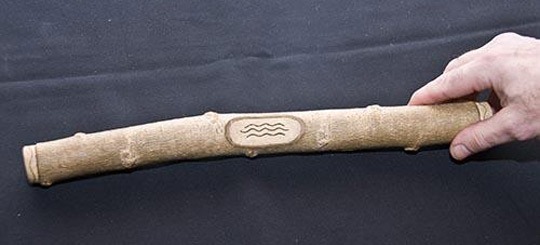
Cottonwood
Definitions
Weak — The dictionary has no less than 18 different variables under the word weak. Suffice it to say that the definitions are broad enough to cover virtually any type of opponent.
On the surface the logic behind this tenet is simple. There is no honor in battle, whether you win or lose if your opponent is obviously weaker than you. But what makes an opponent weaker? Children are obvious examples of weaker opponents in every sense of the word. But what about women? Obviously engaging in physical contact with a woman would violate this tenet, but what about a battle of wills? Is there really any honor in such a battle even if you were to win? Therefore, ask yourself a question when you find yourself about to engage in a battle. Is this a worthy opponent? Is this someone who will make me stronger from the battle or am I merely engaged to satisfy my ego, quell my anger, and assert my power?
In many martial arts, combatants are trained to use the strength or weight of their opponents against them. In many strategic battles out manned troops will prevail by going directly into the stronghold of their enemy. Often where we feel the strongest we are most vulnerable. Because it is where we are the least vigilant.
I often watch my two dogs play with each other. One is an 80 pound Labradoodle, who is seven years old. The other is a two year-old, 40 pound Springer spaniel. The spring will be relentless at nipping at the bigger dog’s heels and continually goading him until the bigger dog has had enough and then starts playing rough and physically dominating the smaller dog. At that point the little dog does a very simple thing; he lies on his back and exposes his belly. The bigger dog stops immediately and goes back to sleeping in the sun. Of the two I consider the Springer to be stronger not physically but in his ability to know when he is in over his head and give in. Conversely the Labradoodle will just keep going and going until he is exhausted or hurts himself, which he does often.
So it is not always in size or physical prowess that the temerity o you opponent can be measured. It is in the degree in which they know themselves.
Before you engage in any battle, look your opponent in the eye. Look deep into their soul. Honor their strength, expose your weakness, and then let the games begin.
– Howard Spierer
(original article: howardspierer.com/man-up/?p=243 Jul 30, 2009 subtitled: "The strength of an opponent is not always gauged by their size.")
Code of Conduct: Fight only Honorable Battles
The wood representing this tenet is Laurel Bay — The leaves of the laurel tree were used to make laurel wreaths that the Romans used to decorate their men of honor. Upon returning from great conquests warriors were sent off to rest on their laurels and to take in the gifts of gratitude bestowed upon them from a thankful community.
The symbol that reflects this tenet is s Spear and shield. These symbols of hand-to-hand combat reflect the purest form of combat. Hand to hand combat is considered the most honorable way to engage in battle because it requires combatants to come face to face and to depend on their individual skill and resolve rather than the quality or power of synthetic weapons. Often the victor in hand-to-hand combat is the man who wants it the most. The man who in his heart believes he has the most to fight for. Whose battle is the most honorable.
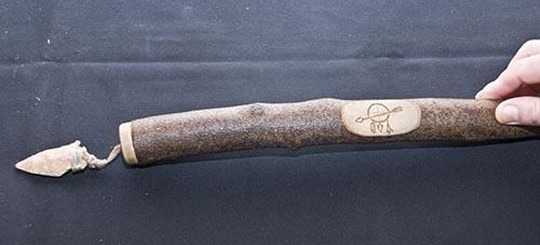
Laurel Bay
For many, the definition of battle is an armed engagement, a war. But a lesser definition defines battle as a conflict, a struggle. For example the conflicts and struggles we fight everyday with the demons and fears that lurk deep inside each of us. Self-doubt, shame, anger. Taking on these emotions are the honorable battles we can fight each and every day. The honor lies in acknowledging these opponents, bringing them into the light and taking them on no matter how ugly it looks. The battle becomes honorable when you turn to other and ask for their help.
Chances are that if you find yourself fighting a battle alone, it is because you are fighting to protect your ego or some personal agenda. By fighting an honorable battle together we strengthen our relationships and build a foundation for a stronger and healthier community.
In order to live one’s life fighting only honorable battles, one must:
- Understand what there is that’s worth fighting for
- Understand what is not worth fighting for
- Have enough mastery over one’s ego to never fight battles in defense of one’s ego.
Once you are able to place emotion aside, you will find it is much easier to discern whether as battle worth fighting. I often find that the greater challenge is maintaining the discipline to meet an adversary have way.
(original article: howardspierer.com/man-up/?p=286 Sep 16, 2010 titled: "Only Fight Honorable Battles")
Code of Conduct: Earn and Honor Rank
The wood chosen to represent this tenet is Redwood — The redwood tree is the grandfather of trees. He stands tall and straight, above all others. He is long lived and considered wise. Redwoods attain a stature unparrelled by any other living thing. They have earned a place in our lore by virtue of their longevity and stature.
The symbol for this tenet is the Eagle — A universal symbol of leadership. The eagle soars high where he can oversee his domain and easily swoop low to the ground to gather what he needs. Like the redwood the eagle has become iconic.
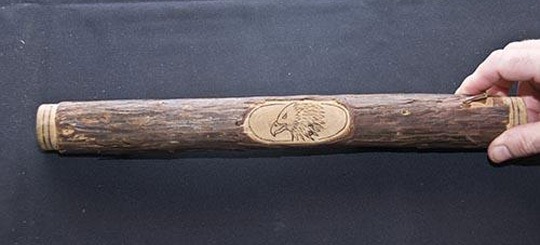
Redwood
There are at least two ways to view this tenet. One is the militaristic notion of following the chain of command. Do what you are told and only what you are told. Don’t question authority. Follow your orders. Anyone who knows me knows I do not prescribe to this interpretation and in MDI we have moved away from the “doing as you are told” model and it is no longer acceptable to do something solely because this is how it has always been done.
For any entity to survive there needs to be some semblance of order, there does not, however, need to be blind unquestioning devotion. If there were, you’d have a cult.
Definitions:
Earn — to acquire through service
Honor — to respect greatly and hold in high esteem.
Rank — a series of things in a line; a degree of dignity, eminence.
These definitions allow us to embrace another way to look at this tenet.
Find your place in the legacy of men.
Each of us is part of a legacy. There are men who have come before us and there will be those who come after. Where do we fit it in? Will you be remembered as someone who gave or someone who took? Earn your place in MDI by virtue of your way of being, you accountability, integrity and passion. And here is the important part: honor that rank by continuing to adhere to those things once you have been placed in apposition of leadership.
The honor is not what followers bestow upon you; it is what you hold in the space as a leader. You honor your men for being good followers and watching their back. You honor the trust they have given to you by holding it sacred and not acting for your own personal benefit but for the good of the community. Being a leader does not mean you are entitled to anything. To honor your title you most hold yourself to a higher standard.
Leadership is hard but the rewards are great. Like a redwood, the longer you maintain your position they more you solidify your place on this earth. The respect and support you have engendered from your men will pay dividends.
I have often believed that the best part of being a leader is stepping down. If you have done your job well, you still have the mantle of respect from your mine but you are no longer looked upon as the man who needs to get the job done. That freedom often allows me to be more effective. Since I am not in the heat of battle I have the opportunity to bring perspective and my wisdom and experience to the process. However, to honor my rank I need to be vigilant and provide my insight to the current leader and offer it up just as that, my opinion. If he chooses not to follow my advice, I need to let it go. He is deserving of the chance to learn his listens. Things need not always go my way. There is nothing in my mind more dishonorable than a shadow leader, like Iago in Shakespeare’s Othello. Someone sitting at the King’s feet and forever whispering in his ear.
Simply put, having earned my seat at the table, I must respect those who came before me and honor those who will follow by leaving my seat just a little better than I found it.
(original article: howardspierer.com/man-up/?p=288 Dec 24, 2010)
Code of Conduct: Be Humble
The wood which represents this tenet is Bamboo — Bamboo is a grass and grows like a weed wherever it takes root. One shoot is virtually indistinguishable from the next. Yet it demonstrates incredible strength and versatility in its uses.
Symbol: Appropriately there are no symbols or markings on this stick.
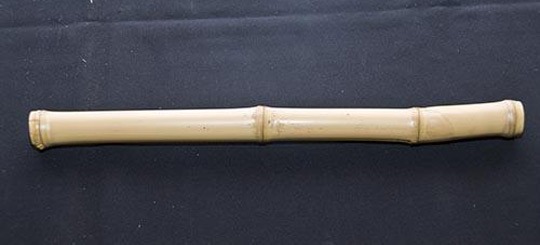
Bamboo
Many men think being humble means being submissive or putting yourself down. It means just the opposite. To have humility is to be strong enough to rise above the needs of your ego. To have such a strong enough sense of self that you need not feel compelled to prove yourself or have your words win the day.
Humility is the opposite of the Ego. The ego is the natural enemy of relationship. When you are humble there is room for you to respect others and the world around you. In that space you can see just how much there is to learn. It is to appreciate, as Earl Weaver once said that, “The smarter I get the more I realize how much I don’t know.”
To be humble you must embrace what Zen Buddhists call a “beginner’s mind”. The student of such a practice approaches everything as if it is new, as if it is being seen and experienced for the first time. It is all new. Every aspect is fascinating and unknown. Every facet contains new information and new experiences. Since you do not already know how to do something, you must allow yourself to be taught by the experience. There is an opportunity to grow and to gain energy from the excitement of stepping into the unknown. It is to avoid the temptation to relate to others by saying, “I’ve done that” or “I know what you mean” or thinking that you know what is in another’s mind.
To be humble is to approach everything and everyone in your life with a beginner’s mind.
– Anonymous
Code of Conduct: Embrace all Men
The wood representing this tenet is Willow — Willow is known for its flexibility. It is used in the structure of the sweat lodge which itself symbolizes the womb which embraces and nurtures. Willow is a rare wood in that if it is severed from the tree it will regenerate itself if soaked in water and properly nurtured.
The symbol that reflects this tenet is that of men’s arms embracing in the secure grasp of one another’s wrist. This grip is often referred to as the life saving grasp.
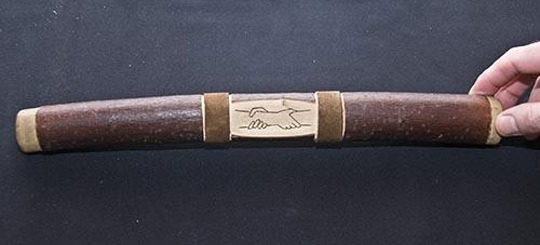
Willow
Definition:
Embrace — to clasp or hold in one’s arms as a sign of affection; to encircle or surround; to include within one’s bounds; to accept eagerly; to take in with the eyes or mind; to submit to with dignity and fortitude.
Embrace ALL Men — Sounds like a big job. Yet we each have done it. In our initiation weekends we had a chance to stand within a circle of men, many of whom we did not know their name or life story, yet we were prepared to take them in for who they were at that moment. We are here now because during our initiation we discovered the power of embracing all men. We discovered our commonality. The shared wounds, common dreams and struggles. No matter how different we may look on the outside, when you strip us down we are really very similar.
To engage in an embrace one must let his guard down. A man is never more vulnerable than the moment before an embrace is completed. In that instant there is complete trust between two men that each will follow through in the unspoken promise to complete the embrace. It is why the actual embrace feels so good. Hold it, feel the connection. Its power can be frightening and uncomfortable. Often times we don’t like to acknowledge just how much we actually share. Often we are surprised to realize how little we need to say to communicate what we feel.
To live this tenet open your arms to the warts and strengths of the men in your circle and consider when a man reveals something about himself that “you are that man”.
– Howard Spierer
Code of Conduct: Be an Example to Children
The wood representing this tenet is Olive — The olive tree represents youth, vigor and nurturing and the olive branch is often offered as a symbolic offering of peace. In the bible, following the great flood, Noah sent out a dove. The dove returned with a leaf from an olive tree representing rebirth and a world born anew. The bark of the tree is very green and it remains green and soft long after it is cut giving the impression that is forever youthful and never fully matured.
Symbol: Heart within a heart. The strong heart of a man must protect, teach and feed the tender, developing heart of the child.
(no photo available)
This is the last of the tenets of the code. It comes last not because it is the least important but because it encompasses everything that comes before it. For in everything we do we are setting the tone for future generations. Children are sponges, they easily and quickly absorb everything they see and hear. They are quick to mimic our conduct. If we provide the example of honoring the truth, our children will understand the value of leading their life with integrity. If we respect confidentiality, our children are less likely to find power in gossip. If we embrace all men and defend humanity our children are more likely to find comfort in inclusion rather than false power from exclusion.
In the Book of Proverbs from the Old Testament there is a passage that says, "start a boy on the right road, and even in old age he will not leave it." How often do we bring back vivid memories from our childhood? Close your eyes and think back as far as you can. Possibly as far back as when you were five or four or even three. Your mind will settle on a moment, a memory. Now think how often that moment impacted upon you in later years. Did it model conduct for you? Did it provide a place of comfort? Or does it bring upon a sense of fear and ill ease?
As we stand here today, we have the power to forge the path of the future and to carry the wisdom of the men who came before us by being an example for children. There are three ways a man can leave a legacy. By the children he sires — by passing on his DNA. By the things he builds — passing on his material wealth. Or by the people he touches throughout his life by sharing his wisdom. Of the three, the third can be the most profound and far-reaching and can often extend well beyond our expectations because we never know who is watching or who is listening. The examples we are are our legacy, cherish and protect it.
Footer section with MDI statement:
MDI empowers men by providing them with the tools they need to succeed. This can come in the form of weekend trainings or weekly courses, one on one mentoring or weekly team meetings. As an organization we believe that true wisdom comes not from a single source but from the diverse viewpoints of our community of men. For additional information, contact infо@mdisuссеss.соm
(c) Copyright 2010 MDI. Developed by Brandora Communications Ltd.
This page was written in the "embarrassingly readable" markup language RHTF, and was last updated on 2025 Dec 12.
 s.30
s.30